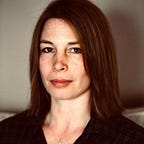This Is Us
There Is a Wrong Time to Start a Family
Including Any Time You Simply Don’t Want To
As young as five years old, I understood without real understanding that when I grew into a woman I would someday, inevitably, become a mother.
As a little girl, I semi-regularly played the game of House with a friend who lived in the next apartment building, and we’d choose our roles before each game: Husband or Wife. We took for granted that choosing Wife also meant playing the role of a mother.
We believed this because we watched as much TV as any kids in the late ’70s, and studies show TV programming has a long and largely unchanged history of featuring women or girls in absurdly stereotypical roles.
The motherhood messages were everywhere, most overtly in the commercials that broke through morning cartoons to prime little girls like me for a single-outcome future. All little girls like dolls, the commercials said, so, as instructed, I did, too. The best doll, one commercial said, was one that felt like a real live baby. It weighed as much as “an actual newborn” and was made with gel-filled fabric, not hard, hollow plastic. Little girls in the commercial cradled and rocked and kissed the lifelike doll cutely dressed in a light yellow onesie.
I bugged and bugged my dad for months. That Christmas, I tore open a box and pulled out and held my own tiny baby, dutifully fantasizing about motherhood even before having finished second grade.
This conditioning persisted into my teenage years when I was starting to suspect motherhood wasn’t for me, with movies like For Keeps, in which pregnant teenage journalist Darcy Elliott (Molly Ringwald) learns having and raising a baby is more important than her journalism goals, and then into my twenties with the NBC sitcom Friends, in which every female character gets pregnant at least once. Not too long ago, in my forties, the horror film Birdbox proved itself to be little more than messaging to women who don’t want children that the day will come when they’ll finally remove their blindfold of ignorance and see that caring for children was the only thing they needed to feel safe and happy all along.
